Math

Educators and Parents, Sign Up for The Cheat Sheet
Weekly updates to help you use Science News Explores in the learning environment
Thank you for signing up!
There was a problem signing you up.
-
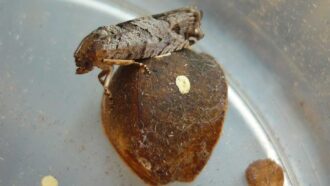 Animals
AnimalsRandom hops always bring jumping beans to shade — eventually
It’s not fast, but jumping beans use randomness to maximize their chances of getting out of the sun’s heat.
-
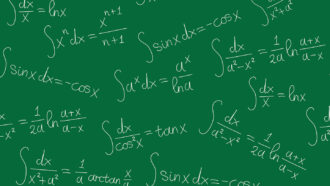 Math
MathScientists Say: Calculus
Calculus is math that deals with curves, from their changing slopes to the areas they enclose.
-
 Math
MathMeet the newest additions to the metric system
The metric system just got its first update in 30 years. New prefixes will help scientists interpret the biggest — and smallest — numbers.
-
 Math
MathScientists Say: Mean, median and mode
Mean, median and mode are all different ways to describe the middle value in a dataset.
-
 Math
MathLet’s learn about dealing with math anxiety
Writing about math anxiety and maintaining a “growth mindset” can help soothe stress about the subject.
-
 Math
MathScientists Say: Variable
A variable is something that can be changed — such as a value in math, or a factor in an experiment.
-
 Math
MathScientists Say: Equation
An equation states that two groups of numbers or variables are equal to each other.
-
 Math
MathLet’s learn about pi
It’s not just an excuse to eat pastries. This number helps describe everything from the smallest particles to planets orbiting other stars.
-
 Physics
PhysicsWhy some icicles become scallops not spikes
The newfound — and at times quirky — shapes reflect the density of water surrounding submerged ice.
-
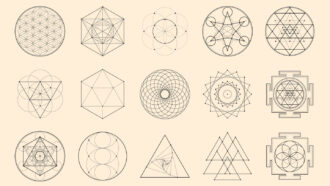 Math
MathScientists Say: Geometry
Geometry is math that allows people to measure, analyze and compare figures in space.
-
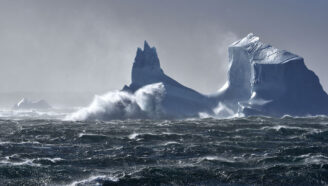 Life
LifeFrom icebergs to smoke, forecasting where dangers will drift
Smoke drifts. Fish eggs float downstream. Where such drifting things end up may seem a mystery. But research can predict where they’ll end up.
-
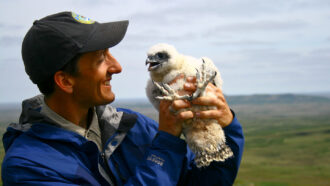 Animals
AnimalsEndangered or just rare? Statistics give meaning to the head counts
Whether studying tiny birds or massive whales, researchers collect a lot of data. The field of statistics helps them make sense of those data.